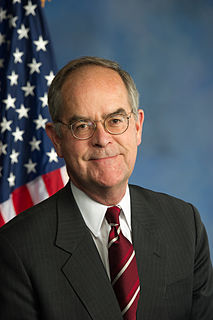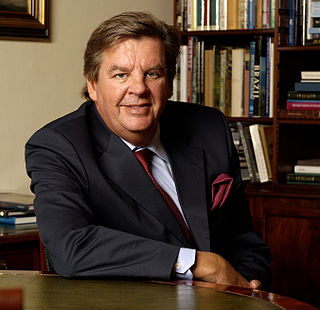A Quote by Nigel Lawson
The fears of recession in the aftermath of Black Monday have turned to fears of the economy racing ahead too fast, with inflation edging up and a substantial current account deficit... People understandably feel more confident about their future than they've done for decades, but as a result they have been borrowing more and saving less... Coming on top of a massive income investment boom, it's all been just a bit too much of a good thing.
Quote Topics
About
Account
Aftermath
Been
Bit
Black
Boom
Borrowing
Coming
Confident
Current
Decades
Deficit
Done
Economy
Fast
Fears
Feel
Future
Good
Good Thing
Income
Inflation
Investment
Just
Less
Massive
Monday
More
Much
People
Racing
Recession
Result
Saving
Substantial
Than
Thing
Too
Too Much
Too Much Of A Good Thing
Top
Turned
Up
Related Quotes
I've never been able to get it straight about what these people who are worried about the trade deficit are worried about. When they say that we're buying too much from overseas, that we're sending too many dollars overseas to get all these goods and services they got, they're saying that the American dollar is too strong and that is hurting our economy. And the result of this will be that the American dollar will get too weak, and that will hurt our economy.
If there had been a charismatic figure in the United States who could mobilize fears, anger, racism, a sense of loss of the future that belongs to us, this country could be in real danger. We're lucky that there never has been an honest, charismatic figure. McCarthy was too much of a thug, you know? Nixon was too crooked. Trump, I think, is too much of a clown. So, we've been lucky.
Many decry rising inequality because it makes those who've fallen behind feel impoverished. But it's done much more than cause hurt feelings. It has also raised the real cost to middle-income families of achieving many basic goals. The process begins with the completely unremarkable fact that top earners have been spending at a substantially higher rate than before. They've been building bigger mansions, staging more elaborate weddings and coming-of-age parties for their kids, buying more and better of everything.
Our practical choice is not between a tax-cut deficit and a budgetary surplus. It is between two kinds of deficits: a chronic deficit of inertia, as the unwanted result of inadequate revenues and a restricted economy; or a temporary deficit of transition, resulting from a tax cut designed to boost the economy, increase tax revenues, and achieve -- and I believe this can be done -- a budget surplus. The first type of deficit is a sign of waste and weakness; the second reflects an investment in the future.
For Russians in the '90s, there was that sense of not knowing what the future held at all. And coming off a long period of when people actually were robbed of the ability to plan their future - that's very much a part of totalitarian control - that exacerbated it. In this country, we are not coming off a long period like that. But I think that for a lot of Americans, as a result of globalization, as a result of the housing crisis, the future is just too uncertain. And their place in the world is too uncertain.
Everybody has been told already that they're too shy, too aggressive, too emotional, too reserved. They know what their fatal flaw is. They know the one thing to do to get better. But they just don't commit to changing because they feel a little bit in love with it, a little bit in love with the way they've been.
For the three decades after WWII, incomes grew at about 3 percent a year for people up and down the income ladder, but since then most income growth has occurred among the top quintile. And among that group, most of the income growth has occurred among the top 5 percent. The pattern repeats itself all the way up. Most of the growth among the top 5 percent has been among the top 1 percent, and most of the growth among that group has been among the top one-tenth of one percent.
And no, it wasn't shame I now felt, or guilt, but something rarer in my life and stronger than both: remorse. A feeling which is more complicated, curdled, and primeval. Whose chief characteristic is that nothing can be done about it: too much time has passed, too much damage has been done, for amends to be made.

































